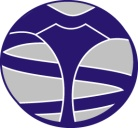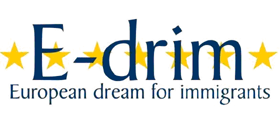Centre for Innovation in Education
 (TEHNE Romania)
(TEHNE Romania)| TEHNE.ro > projects |
|
ProjectsThe projects developed by TEHNE are the measure for the added value in quality assurance and for the contribution to innovative formal and non-formal education practice.
Main methods used are oriented towards direct intervention for the selected target groups: development of new curriculum and teaching and learning methods/ tools, design of extra-curricular activities and other attainment incentives, design and delivery of training programmes for main actors involved at school level - teachers, mediators, school management, design and implementation of specific network building at local and national level. EULLearN - European University Lifelong Learning NetworkRef.#4, 2003-2006, Socrates Erasmus TN, DG EAC EULLearN intends to identify coherent strategies and practical measures to foster university lifelong learning, aiming at a cohesive and an efficient use of existing instruments and resources.
VEMUS - Virtual European Music SchoolRef.#1, 2005-2008, FP6 Priority 2 "Information Society Technologies" VEMUS is a project funded by the European Commission under the Information Society Technologies (IST) Programme of the Sixth Framework Programme (FP6). Students' participation in school life: a form of living democracyRef.#3, 2005-2006, The Royal Netherlands Embassy To Romania - Matra-KAP programme The project aims to support the development of student participation mechanisms and structures at school level and to offer students real opportunities to exercise the democratic participation. It also aims to enhance the school transformation towards a democratic learning environment, with a participative management, flexible curriculum offers, and a modern, democratic organizational culture, based on fundamental principles of democracy and human rights. Take Part Too - Active Global-Citizens SimulationRef.#2, 2005-2006, Socrates Minerva, DG EAC The aim of TPT project is to empower young people from different European countries to play an active and responsible role as democratic European and global citizens using ICT-based structured simulation activities that enable them to explore issues such as immigration, freedom and security and consumerism, with other young people across Europe. MobiKid - Geographic Mobility and Children School Performance in EuropeRef.#5, 2005-2007, Socrates Action 6.1.2&6.2, DG EAC The main objectives of the project are to analyse the impact of mobility on school achievement and to come up with practical recommendations and solutions for supporting pupils' mobility. Civica OnlineRef.#6, 2005-2010, TEHNE - Centrul pentru Dezvoltare și Inovare în Educație The project aims to: present the key-concept and practices in the field of Education for Democratic Citizenship; stimulate the discussion, debate and initiatives on new EDC guidelines and methods; facilitate the flow of information to all the stakeholders.
SME CounsellingRef.#7, 2004-2006, Leonardo da Vinci DG EAC Development of a "Front-Line" advice guidance counselling scheme for SMEs emplyees. Education ClubRef.#8, 2004-2009, National Foundation for Community Development, Ministry of Education and Research Education Club is a teachers' center for exchange of experiences and innovative knowledge transfer at grass-roots level. Publishing and dissemination of EDC materialsRef.#9, June-December 2005, Council of Europe This project is run in the framework of the European Year of Citizenship through Education - 2005, launched by the Council of Europe. VALUE SCOUT Value Schools and Citizenship Observatory for Culture and SportRef.#10, 2004-2006, Socrates Action 6.1&6.2, DG EAC Value SCOUT aims at elaborating a set of policy recommendations, suitable for the different European countries, focused on the educative and socialising dimensions of sport and culture.
E-DRIM - European Dream for ImmigrantsRef.#11, 2005-2007, Socrates-Grundvig DG EAC E-DRIM intends to favor the process of integration of immigrants, especially of those who have higher levels of competences, qualifications and professionalism. Digitisation in the communications sector: a challenge for EuropeRef.#12, 2005-2007, Leonardo da Vinci The project aims (1) to analyse the digitisation processes undertaken by various media channels (at state, regional, provincial and local level, and in both public and private sectors) and (2) to analyse the training programmes, both formal and informal (including those organised by the private sector and institutions) for media professionals, with the aim of comparing these programmes with media employees' real needs, and creating adapted training pathways. Elearning.RomaniaRef.#13, 2004-2008, TEHNE - Centre for Innovation and Development in Education Elearning.Romania project aims to raise the quality and the efficiency of the computer-assisted education area, through offering theoretical support, through best practices and significant local elearning experiences dissemination, through continuous informing regarding the events and the relevant announcements, through promotion of the best solutions, systems and services for elearning. Quality Assurance of Education for Democratic CitizenshipRef.#14, 2006-2007, U.S. Department of State, Public Affairs Section (U.S. Embassy in Bucharest) Teachers and principals of the 6 participating school in Dimbovita county will be able to analyse the EDC and plan their school development in this respect by utilising self-evaluation, school-based evaluation and mutual evaluation methods and techniques. These means make the stakeholders aware of school's and community's resources as they can design the most efficient and suitable way of developing a democratic culture at school level. El Dorado - European Learning Community for Regional DevelopmentRef.#15, 2006-2008, Socrates-Minerva ELDORADO mainly addresses the Regional Development Responsibles and Agents which will be supported by means of a collaborative learning approach influencing the level of attention of regional and local policy makers towards the innovative use of ICT to support learning. It ill also imply the active involvement of the research community and will aim at influencing the regional and local policy makers. Prelude - Training Programme on ICT in Music EducationRef.#16, 2006-2009, Socrates-Comenius The PRELUDE project addresses the needs of music educators who see their fellow teachers benefit from the use of technology and often ask what technology can do for them and how they can get started. RuraLearn - Rural Learning for Development in EuropeRef.#17, 2006-2007, Accompanying Measures - Socrates Programme RuraLearn aims to gather the knowledge, experiences and outcomes of the different Socrates-funded European cooperation projects which have been carried out in the field of learning in rural and geographically disadvantaged areas, analyse them, and present them coherently and systematically to stakeholders and the wider public. EntrepreneurschoolRef.#18, 2007-2009, Leonardo da Vinci Within this European project, Entrepreneurschool is the "acronim" for design, improvement and development of methodology and a guidebook for developing the values and dynamics of the entrepreneurship among our students. IDOLearn - International Development OfficersRef.#19, 2008-2010, Lifelong Learning Programme: Multilateral Projects, Networks, Accompanying measures IDOLearn project aims to propose a solution to the changing role of teachers and trainers in the education systems, through recognition and accreditation of non-formal and informal learning by creating an integrated European system of identifying, assessing and recognising vocational competence-based qualifications of International Development Officer (IDO). EMOTION - Electronic Music & use of ICT for young at risk of exclusionRef.#20, 2008-2010, Lifelong Learning Programme: Multilateral Projects, Networks, Accompanying measures The main goal of the EMOTION project is to develop and to apply an experimental approach based on the ICT use, namely electronic music and informatics so as to enhance learning of key competences in groups at risk of exclusion and to have an insight of the impact of such an approach on final learning. SEFIN: Multidisciplinary surveys concerning the added-value of the intelligent educational software for effective learningRef.#21, 2008-2011, CNMP - National Centre for Program Management (Ministry of Education, Research and Innovation, Romania) SEFIN project intends to study and develop intelligent educational software with the goal of showing the impact of the instructional strategies assisted by computer on the achievement of learning objectives.
European Citizens working for the Global Development AgendaRef.#25, 2009-2011, European Commission: Non-State Actors and Local Authorities - Public awareness and education for development in Europe The overall objective of the Action is to contribute to enabling public opinion makers (educationists, media, local authorities, development actors) in Italy, Belgium, Bulgaria and Romania to better understand and tackle the international development issues, so as to better inform the public of the scope and challenges for actions against poverty and for building fairer relations between developed and developing countries.
ICE3 - Integrating CALL in Early Education EnvironmentsRef.#26, 2010-2012, European Commission: COMENIUS, Multilateral projects ICE3 aims at promoting computer assisted language learning (CALL) at school level, in a way that is based on a pedagogically sound orientation (based on the communicative teaching language principles) and that integrates advanced processing tools for the generation of immediate feedback. Continuous Training for History and Geography Teachers, in the Knowledge SocietyRef.#27fs7, 2010-2013, Proiect POSDRU 87/1.3/S/62651 Continuous Professional Development for Romanian Language TeachersRef.#28fs1, 2010-2013, Proiect POSDRU 87/1.3/S/63576 Continuous training of teachers in technological areaRef.#29fs9, 2010-2012, Proiect POSDRU 87/1.3/S/62631 
Teacher training in the knowledge society: STEM teachersRef.#30fs4, 2011-2013, Proiect POSDRU 87/1.3/S/62534 Continuous development of Math and Economic science teachersRef.#31fs8, 2011-2013, Proiect POSDRU 87/1.3/S/62587 Continuous Training for Teachers of Romanian, English and French, in the Framework of the Knowledge SocietyRef.#32fs3, 2010-2013, Proiect POSDRU 87/1.3/S/63576 Development and implementation of a monitoring, amelioration and quality evaluation system for distance education in universitiesRef.#33fs13, 2010-2013, Proiect POSDRU 86/1.2/S/60720 The teacher - a professional in the education systemRef.#34fs10, 2011-2013, Proiect POSDRU 87/1.3/S/53889 RENOVA: A knowledge transfer and framework construction for nursing staff across Europe to develop professional skills as Managers
Ref.#35, febr. 2011- mar. 2013, Leonardo da Vinci The aims of RENOVA envisage supporting participants in the acquisition and the use of skills and qualifications for the professional development and the employability of experienced nursing staff within health management. The project aims to support improvements in quality and innovation in VET systems and practices, and to enhance the mobility of staff for the benefit of both health organisations and their personnel. LIFE2 - Key Competences in Life Skills
Ref.#36, Oct. 2011- Oct. 2013, Leonardo da Vinci The "Key Competences in Life Skills" project, or LIFE 2 for short, is all about helping young people to develop the skills and confidence needed in the workplace during their vocational training. |
| TEHNE.ro > projects |
| © Centre for Innovation and Development in Education (TEHNE Romania) |
|
|






